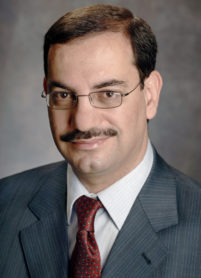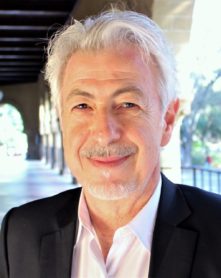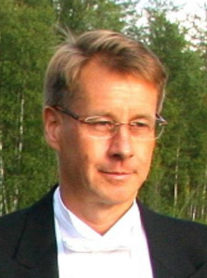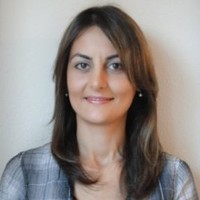Keynote Speaker 1: Ali H. Sayed (EPFL, Switzerland)

Speaker: A. H. Sayed is Dean of Engineering at EPFL, Switzerland, where he also directs the Adaptive Systems Laboratory (https://asl.epfl.ch). He has served as distinguished professor and former chairman of electrical engineering at UCLA. He is a member of the US National Academy of Engineering and is recognized as a Highly Cited Researcher. He was also President of the IEEE Signal Processing Society. An author of over 530 scholarly publications and six books, his research involves several areas including adaptation and learning theories, data and network sciences, statistical inference, and multi-agent networks. His work has been recognized with several awards including the 2015 Education Award from the IEEE Signal Processing Society, the 2014 Papoulis Award from the European Association for Signal Processing, the 2013 Meritorious Service Award and the 2012 Technical Achievement Award from the IEEE Signal Processing Society, the 2005 Terman Award from the American Society for Engineering Education, the 2005 Distinguished Lecturer from the IEEE Signal Processing Society, the 2003 Kuwait Prize, and the 1996 IEEE Donald G. Fink Prize. His group has been awarded several Best Paper Awards from the IEEE (2002, 2005, 2012, 2014) and EURASIP (2015). He is a Fellow of IEEE, EURASIP, and the American Association for the Advancement of Science (AAAS), the publisher of the journal Science.
Keynote Speaker 2: Oussama Khatib (Stanford University, US)

Speaker: Oussama Khatib is Professor of Computer Science and Director of the Robotics Laboratory at Stanford University. His research in robotics focuses on novel control architectures, algorithms, sensing, and human-friendly designs for advanced capabilities in complex environments. With an emphasis on enabling robots to interact cooperatively and safely with humans and the physical world, these studies bring understanding of human movement for therapy, athletic training, and performance enhancement. This work on understanding human cognitive task representation and physical skills is enabling transfer for increased robot autonomy. With these core capabilities, we are exploring applications in healthcare and wellness, industry and service, farms and smart cities, and dangerous and unreachable settings – deep in oceans, mines, and space. He is President of the International Foundation of Robotics Research (IFRR) and a Fellow of IEEE. He is Editor of the Springer Tracts in Advanced Robotics (STAR) series, and the Springer Handbook of Robotics, awarded the American Publishers Award for Excellence in Physical Sciences and Mathematics. He is recipient of the IEEE Robotics and Automation (IEEE/RAS) Pioneering Award (for his fundamental contributions in robotics research, visionary leadership, and life-long commitment to the field), the IEEE/RAS George Saridis Leadership Award, the Distinguished Service Award, the Japan Robot Association (JARA) Award, the Rudolf Kalman Award, the IEEE Technical Field Award, and the Engelberger Award. Professor Khatib is a member of the National Academy of Engineering.
Keynote Speaker 3: Pasi Fränti (University of Eastern Finland, Finland)

Speaker: Pasi Fränti received his MSc and PhD degrees from the University of Turku, 1991 and 1994 in Science. Since 2000, he has been a professor of Computer Science at the University of Eastern Finland (UEF). He has published 79 journals and 167 peer review conference papers. His main research interests are in machine learning, data mining, and pattern recognition including clustering algorithms and intelligent location-aware systems. Significant contributions have also been made in image compression, image analysis, vector quantization and speech technology. Pasi Fränti is the head of the Machine Learning group at the school of computing at UEF.
Keynote Speaker 4: Ozlem Kalinli (Meta AI (Facebook AI))

Speaker: Dr. Kalinli is a Facebook research scientist manager since 2020 in California, United States. She is an AI/ML expert focusing on speech and audio processing, automatic speech recognition, natural language understanding, and deep learning. She was with the SIRI Speech team at Apple in Cupertino, CA, since 2017. Before joining Apple, she was a senior research scientist in the R&D Group at Sony Interactive Entertainment (SIE), San Mateo, CA, from 2010-2017. Prior to that, she was a research assistant in the Signal Analysis and Interpretation Laboratory (SAIL) at USC from 2005-2009 and the Immersive Audio Laboratory at USC from 2003-2005. In the summer of 2008, she was a visiting researcher in the Laboratory at USC from 2003-2005. She is an associate editor of the IEEE Transactions on Audio, Speech and Language Processing since 2019, and a member of IEEE Speech and Language Technical Committee (SLTC) since 2018. She was also an organizer of IEEE Spoken Language Technologies (SLT) Workshop 2014, and Hands-free Speech Communication and Microphone Arrays Workshop 2017, and speech recognition area chair for Interspeech 2016.
